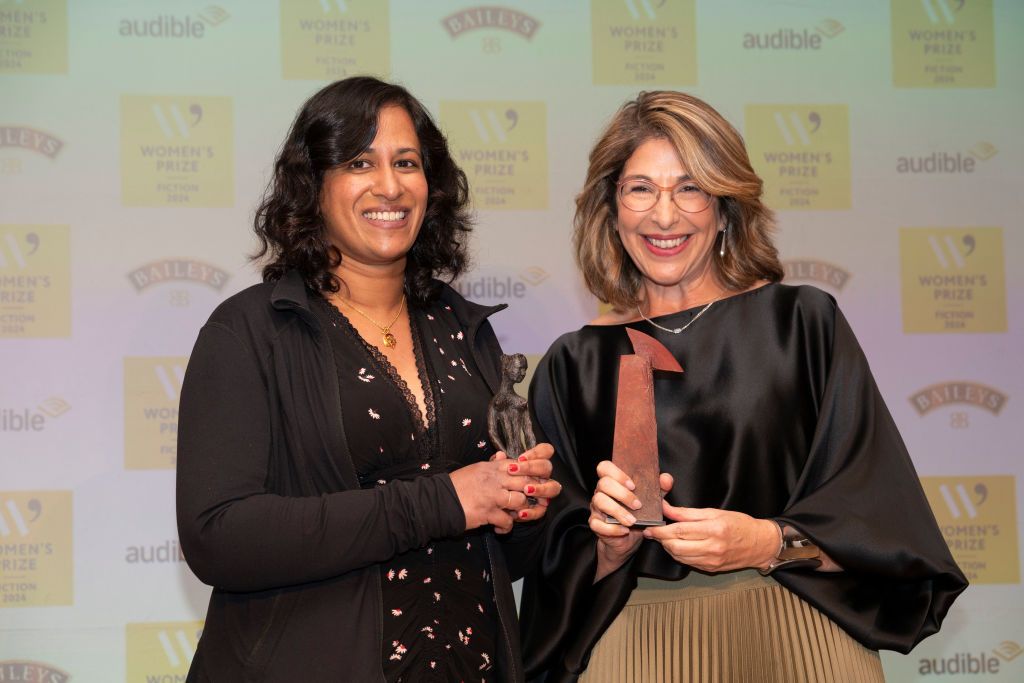
V.V. Ganeshananthan was awarded the 2024 Women’s Prize For Fiction for her novel Brotherless Night, and Naomi Klein won the inaugural Women’s Prize For Non-Fiction winner for her book Doppelganger: A Trip into the Mirror World at a ceremony in London on June 13
The winners of the prestigious Women’s Prize For Fiction and the first Women’s Prize For Non-Fiction were announced at a ceremony in London last night.
The Women’s Prize For Fiction 2024 was awarded to American author V. V. Ganeshananthan, who is of Sri Lankan Tamil descent, for her second novel Brotherless Night, a tale of a young woman’s disrupted by the Sri Lankan civil war.
“Brotherless Night is a brilliant, compelling and deeply moving novel that bears witness to the intimate and epic-scale tragedies of the Sri Lankan civil war,” said Monica Ali, chair of judges for the Women’s Prize For Fiction.
This year marked the launch of the inaugural Women’s Prize For Non-Fiction, to recognise exceptional narrative non-fiction by women.
It was awarded to Canadian writer, activist and filmmaker Naomi Klein, whose book Doppelganger: A Trip into the Mirror World uses the author’s experience of being continuously confused for American author Naomi Wolf, who has become known for her right-wing opinions particularly related to the Covid-19 pandemic and the anti-vaccination movement, to shine a light on social media, where conspiracy theories and disinformation reign, and examine our increasingly polarised society.
“Doppelganger is a courageous, humane and optimistic call-to-arms that moves us beyond black and white, beyond Right and Left, inviting us instead to embrace the spaces in between,” said Professor Suzannah Lipscomb, chair of judges for the Women’s Prize For Non-Fiction.
The Women’s Prizes celebrate female writing and this year’s winners were each chosen from a shortlist of six books.
The fiction shortlist included former Women’s Prize for Fiction winner Kate Grenville, whose novel The Ideas of Perfection won in 2001; Claire Kilroy’s fierce novel Soldier Sailor on motherhood; the debut from French-Chinese-American novelist Aube Rey Lescure, River East, River West, a coming-of-age story set against China’s economic boom; and British-Palestinian author Isabella Hammad’s Enter Ghost, an examination of Palestinian identity.
The non-fiction shortlist was broad, tackling topics as varied as inheritance and dispossession (A Flat Place by Scottish-Pakistani writer Noreen Masud), the experience of slavery (All That She Carried by Tiya Miles), and the rapidly changing world of AI (Code Dependent: Living in the Shadow of AI by the Financial Times‘s AI Editor Madhumita Murgia).
See also: 15 must-read non-fiction books of 2023 selected by Front & Female






